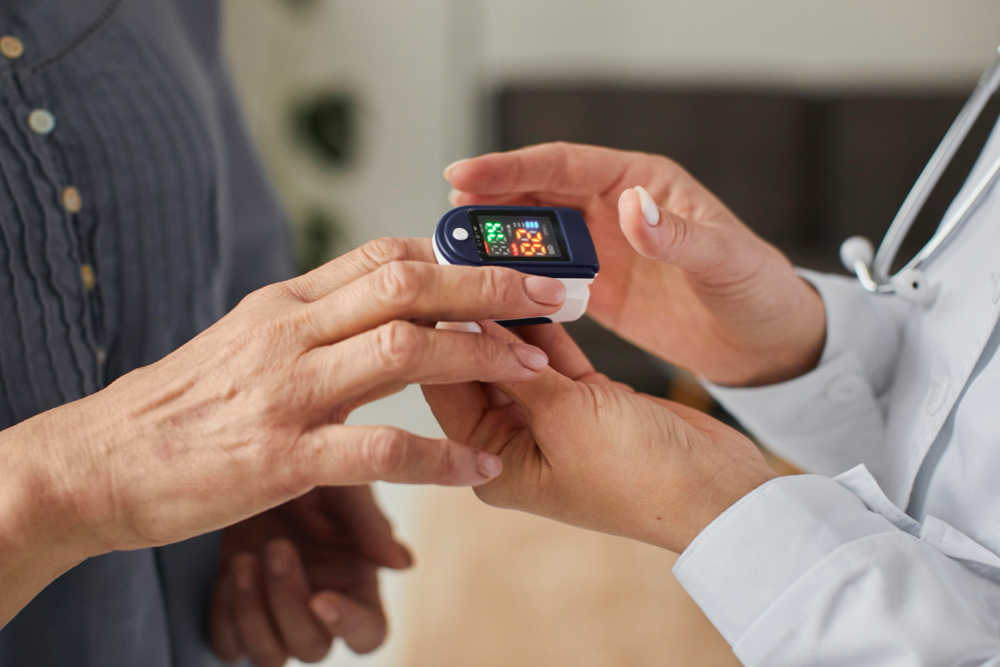- Fast results
- 4,000+ locations
- 4.8 star rating
Need Help? (888) GET LABS



A blood glucose test is a common diagnostic and monitoring tool for diabetes. It evaluates glucose or sugar in the blood, specifically detecting excessive or inadequate amounts. Monitoring your blood sugar level allows you to better understand your body’s responses to glucose metabolism. And thus, it lets you make informed decisions about your health.
A blood glucose test measures the level of glucose in your blood. It’s a critical tool for diagnosing diabetes and monitoring blood sugar fluctuations that can compromise your health. By determining your serum glucose, healthcare providers can better understand how your body processes sugar and uncover underlying health issues.
Evidently, you’ll need a blood sample to undergo glucose blood testing. There are two ways to take this test, and it will depend on your doctor’s recommendation and the prescribed frequency for regulating your sugar levels in the blood.
Your first option is to take a blood glucose test at an accredited laboratory, where a phlebotomist will collect and analyze your blood sample. You’ll be recommended this option if you’re suspected of having diabetes or prediabetes, along with other diagnostic tests, like the A1C test and insulin blood test.
Second is using an at-home glucose test strip you can buy over the counter. You can perform this test yourself. Start by pricking your finger using a small lancet. Then, simply put a drop of your blood on a test strip. Then insert the strip into a glucometer, a portable device that reads your blood glucose level.
People already diagnosed with diabetes or other metabolic disorders can use blood glucose test strips and a glucometer to monitor any drastic changes in their glucose levels. Doing so prevents any complications from hyperglycemia (high blood sugar levels) or hypoglycemia (low blood sugar levels).
Aside from how your blood sample is collected and analyzed, blood glucose tests also vary in terms of purpose. There are three common types of tests, specifically fasting blood glucose (FTB), random blood glucose, and oral glucose tolerance.
As implied by the name, this type of blood glucose test is performed after fasting for eight hours to get a baseline reading of your blood sugar levels. It screens for prediabetes, gestational diabetes (for pregnant women), as well as type 1 and 2 diabetes. Ideally, you should be able to fast overnight and get tested in the morning before breakfast to meet the required timeframe.
Unlike the FBG test, you can take the random blood glucose test anytime during the day without abstaining from eating or drinking. This type contains a higher reference value to consider glucose derived from meals. It serves the same purpose as that of FBG but is designed for patients who cannot fast.
The oral glucose tolerance test assesses how your body responds to sugar, which provides insight into insulin resistance. It’s not as simple as the other two in that you’ll need to drink a glucose solution first. Then, your blood sugar levels will be measured in intervals within a few hours.
Curious about what other tests there are to diagnose diabetes? For starters, here are the other common blood tests related to evaluating glucose metabolism and insulin function.

Adults ought to have their blood glucose level monitored, especially as part of their annual wellness checkup. It’s also critical for individuals with a family history of diabetes and a lifestyle that further increases their risk. Naturally, you would want to monitor your blood sugar levels for three general reasons, following the diabetes management steps.
In addition, symptoms of diabetes may differ among individuals, including the condition’s impact on physical appearance.
The frequency of blood glucose testing depends on the severity of the condition, your treatment plan, and how well-managed diabetes is. For example, if you are undergoing insulin therapy, you may need to test multiple times a day compared to when you have the sugar levels under control or within the normal range.
Still, make sure to consult your doctor about when and how often you should do blood glucose testing. Your management plan may require personalization based on how your healthcare provider assesses your diabetes.

When taking a glucose blood test, it’s important to follow the proper procedure to ensure accuracy. Otherwise, you risk retaking the test. To do this, see our tips below on how to prepare for a blood test measuring your glucose levels.
Preparing for a lab test
Using blood glucose strips and a glucometer
While glucometers in the market pride themselves on their accuracy, results interpretation should be best left to professionals, especially if you’re following a treatment plan. Avoid self-diagnosing and making assumptions without consulting your doctor.
If you’re taking a fasting blood glucose test, you’ll be asked to fast or abstain from drinking or eating within 8 to 12 hours, depending on the testing method. If you’re taking other types of glucose blood tests, this may not be necessary. However, keep in mind that fasting sets the ground for accuracy in an FBG test. Therefore, it’s imperative to confirm the number of hours you shouldn’t eat or drink.
If you’re experiencing hyperglycemia, you may feel extremely tired and thirsty, on top of having a dry mouth, frequent urges to urinate, and blurry vision. There can also be unexplained pain and headaches at times. In the long run, you’ll start to notice wounds heal slower, and you feel bloated most of the time.
Prediabetes showcases symptoms similar to diabetes or hyperglycemia. So the most accurate way to know if you have prediabetes is by taking a blood test and consulting with your physician. You will only be considered prediabetic if your blood sugar exceeds the normal level but is not too high to be classified as diabetes.
Did You Know? Not everyone diagnosed with prediabetes immediately develops diabetes. You can prevent or keep the development at bay. Follow our tips on reversing prediabetes through lifestyle changes.
You can confidently manage your sugar levels if you understand the importance of blood glucose testing and know when and how often to test. Be sure to consult your healthcare provider for personalized advice and guidance. With a proactive blood glucose monitoring approach, you can take charge of your health and make informed decisions.

© Copyright 2025 Personalabs. All Rights Reserved.